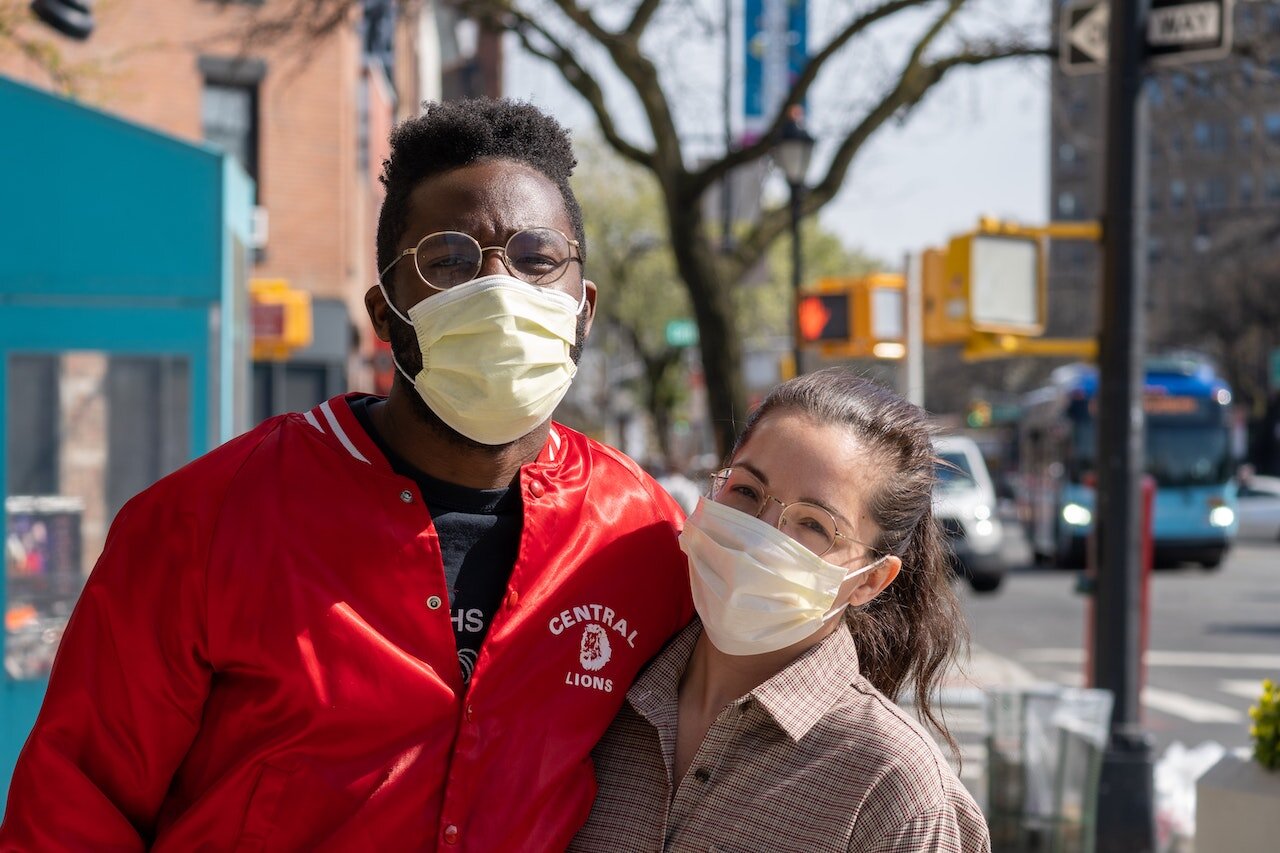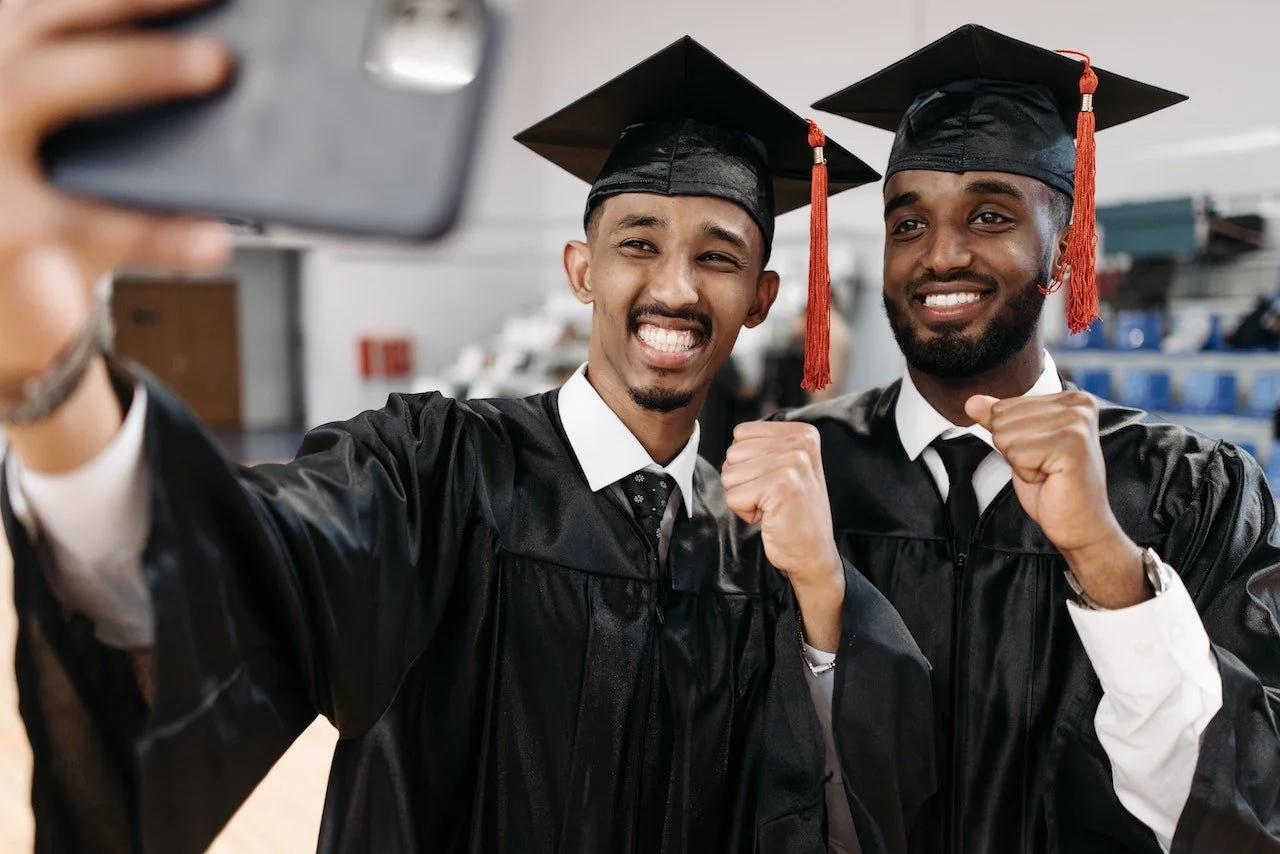Make New Social Connections on Campus: Expand Your World
/Social connection is a core human need. Having a strong support network is essential to building a sense of belonging. Research shows the positive correlation between social connectedness and overall wellbeing, resilience, and life satisfaction.
Benefits of Social Connectedness in College
For students, a feeling of belonging is a key predictor of engagement, retention, and success. Social connections provide students with the emotional and academic support they need to thrive.
Regular social interaction helps develop meaningful and lasting relationships. There are plenty of stories of college friends starting a business together. I personally have several friends who met their significant other in college. Even some of the more short-term connections can provide long-term benefits.
Having a strong support network helps students feel less isolated. It helps them realize that they are not alone in experiencing stress and anxiety. Social connectedness also helps prevent student burnout and contributes to higher student retention rates.
Ways for Students to Engage and Make Meaningful Relationships
Being in a new environment can feel overwhelming and intimidating at first. This may especially be true for first-year students and this year’s sophomores that may be walking on campus for the first time.
Students returning to campus this fall may also benefit from tips on how to sharpen their social skills. Finding ways for students to connect and engage is even more important in the context of the current pandemic.
Engage with Others
Socializing is not necessarily easy and free flowing for everyone and can induce anxiety. More introverted personalities who prefer one-on-one interactions or small group settings (let me share that I fall into this category), may be intimidated by large or public social settings.
After a year of limited and mostly virtual interactions, many people (even extroverted personalities) may need time reacclimating to in-person interactions. Wherever you may fall on the communication spectrum, here are five tips on how best to engage with someone:
Don’t hide behind your phone- If you look busy people will think twice before speaking to you. By being present, you are signaling to others that you are open to interacting.
Use positive body language- Making eye contact and smiling are simple ways to show that you are both friendly and approachable.
Introduce yourself- If you’re sitting next to someone you don’t know, introduce yourself. Tell people about who you are, where you are from, what your hobbies are. You never know what interests you might have in common.
Show genuine interest- Asking people genuine questions demonstrates that you are fully engaged and interested, which leads to richer and more fulfilling interactions.
Keep an open mind- Don’t judge someone based on pre-conceived notions. Give everyone a chance. You never know what shared experiences you may have and who may end up becoming a friend.
Expand your Network
Building relationships on campus with fellow students, professors, tutors, and mentors, can help make the college experience a lot easier. The connections you make will become the support network you need to feel that sense of belonging and help you succeed.
Engaging in a variety of different social activities is also a great way to explore new things and enhance social skills. Learning to step out of one’s comfort zone and adapting to various social settings are key life skills with personal and professional benefits.
Here are five ways to make friends and build connections on campus:
Say “Yes” to being social- Some students may delay participating in extracurriculars until they feel they have their academic life under control. However, there is a strong correlation between a lack of involvement in extracurricular activities and dropout rates.
Students that establish a healthy work-life balance early on have better engagement and success rates. Therefore, it is very important for colleges to provide students with many different opportunities to socialize and get involved in campus life.
While students need to keep their head down and study, setting aside time to connect with other students and mentors is critical to a positive college experience. The most fulfilled and successful students strike the balance between academic and social obligations.
Join a club, group, or sports team- Student organizations, clubs or sports teams are great ways to share interests with fellow students and engage in college life. Involvement fairs are a great way of exploring all the social and co-curricular activities available on campus.
Seeing fellow students outside regularly of the classroom helps build connections and friendships. Peer study groups provide great support systems and help develop good study habits. They are also a great way to expand a knowledge base and learn teamwork.
On-campus jobs or volunteering opportunities also provide opportunities to connect to one’s campus. Further, study-abroad programs are wonderful ways for students to broaden their horizons and expand their network.
Attend events- Events are a great way for students to connect and broaden their social circle. While it’s great to attend events that relate to hobbies or interests, it’s also good to attend something that may be out of scope. Not only does this broaden perspective, it also help build resilience.
A good practice for students to meet new people is to accept invitations to events and offer invitations. Reaching out to others indicates to people that you are interested in them and means that they are more likely to reach out to you.
Colleges with a centralized calendaring system helps keep students informed of what is happening on campus. A central campus calendar increases the visibility of events on campus, fostering student involvement.
According to current clients, “providing students with a single location to browse upcoming events, register, and sync updates to their mobile devices has boosted student engagement.”
Connect to support networks- Campuses that provide multiple and varied support networks have happier and more resilient students. This directly correlates to student retention.
Students that are struggling should know that they are not alone. They should feel comfortable reaching out to fellow students, staff, or healthcare professionals. Most colleges offer dedicated resources such as campus and student services for individuals to reach out to for help.
Peer counseling, upper class and faculty mentoring programs are also great ways for students to stay on track throughout their academic career. Connections made through these advisory programs often play a significant role in the lives of college students beyond graduation.
Leverage technology- Digital technology and social media networks play an important role in maintaining social connectedness. It is one of the primary ways that we engage with the world and nurture relationships. This may be even more true today, amidst the pandemic.
People often share personal experiences and thoughts on social sites. Some may even feel more comfortable interacting with others virtually. Having the option to engage through chat or over video is a great way to cater to busy schedules and promote on-demand involvement.
A student engagement platform is a simple way to explore all a campus has to offer. The more successful platforms serve as the one-stop-shop for students to browse campus programming, register for events and student organizations.
The more innovative platforms, available on the web or mobile, offer fun features that promote engagement. These include automated matching technology that suggests new organizations or individuals for students to connect to based on user profiles and listed interests. Some also enable users to host and attend involvement fairs, networking sessions and coffee chats virtually.
The benefits of engaging and connecting with others are clear. However, it is not always easy to make new social connections. Students that have mostly experienced a virtual or hybrid campus setting, due to the Covid-19 pandemic, reported having a harder time making friends and feeling lonely or socially isolated. We hope that this article helps students, old and new, engage with their campus and make meaningful relationships.
RELATED ARTICLES:






















We help campuses achieve more by delivering a total student experience solution for the entire Higher Ed community. Our technology drives success throughout the entire student life cycle.
As the leading digital student experience solution in higher education, we are continually innovating. In the last six months, we launched the following 5 New Solutions that Improve the Student Experience:
🆘 Interventions+
🚪 Room Reservations
📇 New Campus ID
💸 Fundraising
🔗 Microsoft Teams Integration